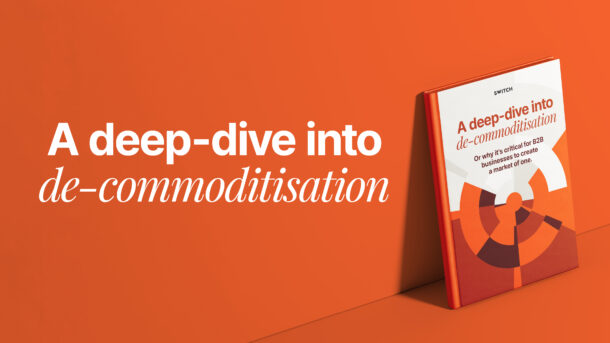Facebook has stopped growing.
In their latest released quarterly report, Meta has highlighted that there’s been a drop of one million in global daily users, taking their figures down from 1.93 to 1.929. Added to the flat net growth of new users for Instagram and WhatsApp, the figures do not paint a pretty future for Meta.
Websites lose people all the time. Why is this such a big deal?
Facebook isn’t a website. It’s the reason social media is the way it is, and for 18 years, it’s grown continuously, with a bulletproof stock and a formidable portfolio that just subsumes all other competing websites. At the height of its power and popularity, Facebook bought Instagram; it bought WhatsApp. It could do that, unchecked, because it had market lead and power behind it, and other start-ups couldn’t compete.
Mark Zuckerberg said it himself: “we can likely always just buy any competitive startup.”
Now, Facebook is struggling. The drop in daily users also wiped out 26% in stock value, triggered Wall Street’s worst one-day stock decline in history, and just erased $232 billion of Facebook’s worth.
And it pulled other tech stocks with it.
Think of it like an ecosystem. Every ecosystem, no matter how small, relies on balance.
For the first time in 18 years, Facebook has stumbled, and the balance of the entire social media ecosystem is in flux.
Okay, so how did this happen?
This has been four years in the making, and it happened because Facebook ignored the signs over those four years.
When Cambridge Analytica’s Christopher Wylie came out and said that Facebook had been mining personal data from a just-for-academic-use app called This Is Your Digital Life, it hit Facebook right where it mattered most: in its unchecked, overwhelming obsession over growth. In 2018, the year of Ted Cruz and Trump and Brexit, the last thing any Facebook user wanted to add to their plate was realising their personal information had been stolen to support these causes.
What are you talking about?
This Is Your Digital Life actually paid people to complete a Facebook survey. This was only supposed to be for academic research, but Facebook allowed it to keep mining data – and that data was later used in Ted Cruz’s campaign in the United States, Donald Trump’s campaign, and the push for Brexit.
Collected data was used to create individual profiles that would sway people into voting for these events. The full investigation concluded that Cambridge Analytica’s influence was likely negligible (except for the Ted Cruz campaign) but that didn’t really matter: Facebook had placed itself on a side of history nobody wanted to be on – as the catalyst for some of the most chaotic political events in history, pulling the strings to influence the outcome.
But if Facebook wasn’t found guilty—
Facebook was found guilty.
But nothing really happened except for a handful of fines.
At its core, Cambridge Analytica is a research firm. It’s a conservative research firm, dealing with private intelligence and the military, but it’s still just a research firm.
Facebook is a social media company with a reach of billions, the kind of reach that a research firm can’t even dream of possessing.
And Cambridge Analytica – with Facebook – reached it.
Without Facebook’s consent, and without Facebook’s reach, Cambridge Analytica wouldn’t have managed to farm so much data from so many people to use for their tampering.
How does something that happened in 2018 lead to Facebook losing users four years later?
Facebook didn’t do anything with the Cambridge Analytica scandal. There’s been no reform – except for stringent ad measures that make it impossible to use Facebook for advertising – and there’s been no transparency about whether or not they’re still collecting that data or using the data. Mark Zuckerberg is a closed box on everything to do with 2018.
However, people don’t forget.
And when you have one big violation of privacy and trust, it’s never just one.
In 2021, Sophie Zhang, another whistleblower, put another nail in the ‘Facebook is negligent at best and actively harmful at worst’ coffin. As part of the Facebook Site Integrity fake engagement team – yes, that’s a real thing – her task was to investigate the use of likes, comments, shares, and reactions, and see if they were made by real people.
What she found went much deeper than that.
Authoritarian regimes, such as in Honduras and Azerbaijan, could artificially inflate their popularity using bots and other fake entities.
Facebook knew about it.
Facebook did nothing because the bottom line would suffer otherwise, and Facebook’s first priority has always been Facebook.
Wait, but Mark Zuckerberg said Tiktok was the reason that Facebook was losing users!
He’s right.
Partially.
The problem with Facebook is that it spent so much time at the top of its market that other competitors it didn’t consider as competitors have started to climb in popularity. TikTok boomed in the pandemic because its format – short form, bite size videos – and relatively scandal-free background made it appealing. There’s no agenda to TikTok except giving creators the room to share their creativity, a thing that Facebook has long since dropped in the reach for greater profits.
Tiktok is definitely a reason for Facebook’s decline in popularity, but it’s about 1% of that reason. The rest is just pure Facebook shenanigans.
Facebook’s rebranded though! And it’s doing so well!
It’s not.
The rebrand to Meta came on the heels of – you guessed it, another information scandal! Gold star for you.
This time, the whistleblower was Frances Haugen, who joined Facebook in 2019 after someone she was close to was radicalised through Facebook.
By 2021, Frances Haugen leaked ‘The Facebook Files’ to the Wall Street Journal, a collection of internal Facebook documents, online employee discussions and research reports that showed Facebook consistently, continuously ignoring the damaging effects that Facebook and Instagram had on the world.
From influencing teenagers through Instagram to Facebook activity propping up violent insurrections like the January 6th Capitol riots, the Facebook Files didn’t just highlight that Facebook knew about its effects on people, but also that it did nothing to control it – and what it did do, such as implement an AI to detect and remove violent content, had an algorithm so poor that it only managed to act correctly less than 0.6% of the time.
A few weeks later, Zuckerberg said that Facebook was rebranding itself as Meta, and focusing its next phase of growth on the metaverse.
Oh, yeah! How’s that going?
The problem with putting all your eggs into the metaverse basket is that the technology that you’re working with has to be better than the technology people are used to.
And it has to be cost effective.
Virtual worlds where people could connect with others aren’t new: they’ve been around since the days of Runescape, World of Warcraft, and Playstation Home, and while you can make the argument that the metaverse is different from a virtual world lobby, the early analysis of Facebook’s launched virtual world are not great, considering that it’s not new tech, only tech that should be – realistically – better than a free-to-play MMO.
So, poorly. Facebook’s metaverse push is going poorly.
Its entire VR/AR/XR reality wing is losing money. Last year, it was $10.2 billion. Facebook’s VR headset, the Quest, has only sold around 10 million units – barely a fraction of what early VR headsets sold with less-capable tech. Zuckerberg isn’t shy about letting people know that the company is going towards more investment for VR and AR, but there’s the issue: who’s going to pay for it?
Facebook, the social media which has paid for it so far, is struggling.
If it breaks, so does Meta.
So… will it?
This is hard to answer, but the likelihood – given the way Facebook operates, its stringent focus on protecting itself – the chances are that things will have to change in order for Facebook to maintain itself.
Turning a profit is another story.
People have long memories. And Facebook hasn’t had one scandal, or two, or three: it’s had three scandals focused on how badly it mistreats and how little it cares about anything besides itself. It’s pushing for a technology that will be – at its core – out of the price range of a wide number of its users. It’s not innovating anything that users want.
It still hasn’t addressed its algorithm problems, the AI failure, or where the data from Cambridge Analytica went.
We talk a lot about how brands have to change to survive; how they have to adapt to consumers, not the other way around. How there’s likely, in your field and in ours, at least ten other companies offering the same product with better benefits or a cheaper price.
This goes for big corporations as well as smaller ones.
But in Facebook’s case, it’s had four years to address these reports. It’s had longer than that to adapt itself to a world that was always going to be this way: transparent, bare to criticism, and very competitive.
Facebook is no longer unique. Facebook refuses to innovate. Facebook doesn’t want to put its consumers first.
And if it doesn’t start to make changes, Facebook will struggle more.
What do you think can save Facebook?
A time machine.
But failing that, there’s not going to be a Facebook that thrives with Mark Zuckerberg still on its board.
As we’ve seen with Twitter, companies have a tendency to outgrow their founders. To succeed, those founders have to step back.
We don’t think Zuckerberg will resign – not on paper. As a PR stunt, or the result of forced governmental intervention, maybe, but not out of his own volition.
And that’s the reality Facebook has to grapple with.
But what does this mean for businesses?
Facebook seceding its market share means everything for businesses, especially if you advertise on Facebook or Instagram – which, if you advertise online, you kind of have to.
To clarify: neither Facebook nor Instagram is on the brink of complete catastrophic failure. They’re still powerful, profitable businesses. And you can still use them to drive great ROI if you know what you’re doing.
But the ground they’re standing on is getting thinner, and if it ruptures, the problems for businesses will all boil down to communications.
How can you talk to a global audience without a platform to talk to them on?
And how can you make a profit from that?
Facebook’s business struggles impact every enterprise that uses Facebook to advertise, that puts pictures on Instagram, that sends out targeted messages with Whatsapp. This has been the status quo for 18 years. Advertising standards have been built on this pattern.
If it falls, businesses will have to find a different way of communicating.
The good thing is that there’s no end of ways to talk online – but you need to start figuring that out from now. Don’t wait until Facebook and Instagram become more obtuse to use, become saddled with even more add-ons, with even greater problems.
Twitter, Tiktok, Snapchat, Youtube: there’s different social medias out there that can be just as effective.
You just need to pick a platform and start talking.
Or, if you really want to do the right thing, be on trend and focus on first-party data. Free yourself from the shackles of other platforms and build your own audience.
So – I’m okay for now?
For now.
But all businesses have to start looking forward ten years into the future. This doesn’t even have anything to do with Facebook: it has to do with the way the world works now.
As we’ve seen, things can change so rapidly, so blink-of-an-eye fast, that you can spend a year grappling to hold on.
Start thinking about the worst case scenario now. Find your different social media of choice. Expand outwards.
It makes for better storytelling, and it makes for a future-proof communication strategy.
Facebook won’t fail this year or the next.
But do you really want to take that risk?




